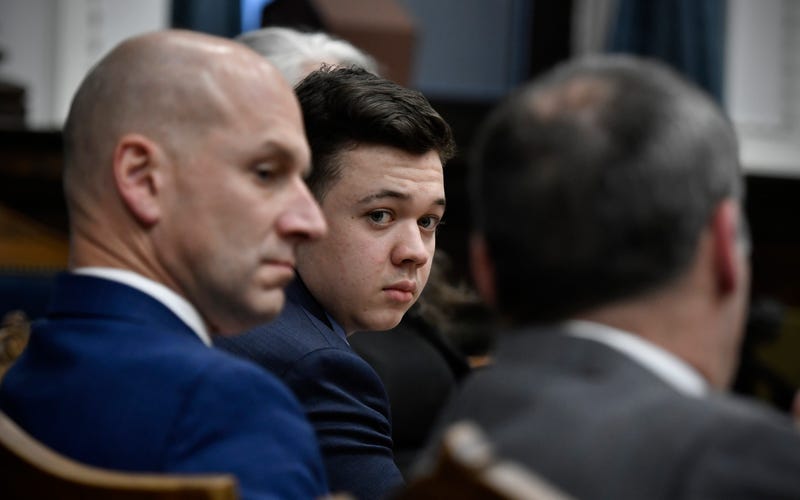
1010 WINS (NEW YORK) -- Friday afternoon Kyle Rittenhouse was acquitted of all 5 charges he faced in connection to last year’s Kenosha shootings that left two men dead and a third injured.
Being acquitted means that he will not serve any jail time, he won’t be put on probation, and he won’t have to surrender his guns.
His was the latest case to divide the country; however, from the beginning, some had sided with Rittenhouse’s plea of self-defense. He claimed he shot at all three victims to protect himself.
Others were outraged by his actions because, living a state away in Illinois, it was unclear why he even appeared at the Wisconsin protests, let alone why he showed up armed.
While he walks away a free man, the jury’s decision has caused controversy and confusion all across the nation.
Was justice served? More importantly, does this case set a dangerous precedent for future events and similar circumstances? Those are only a handful of questions we aim to answer in this week’s episode of 1010 WINS In Depth: The criminal trial of Kyle Rittenhouse.

This week’s guests include Kim Belware, John Plaff, and Charles Coleman Jr.
Belware, a reporter who has been on the ground in Kenosha since day one, offers some interesting insight into what Rittenhouse’s supporters have been saying outside the courtroom.
Plaff, an author and law professor at Fordham University, breaks down how self defense laws, open carry laws, and the burden of proof contributed to this case.
A former prosecutor himself, Coleman Jr. takes aim at the perceived double standard of justice that exists in modern America.
LISTEN on the Audacy App
Sign Up and Follow Audacy
Facebook | Twitter | Instagram